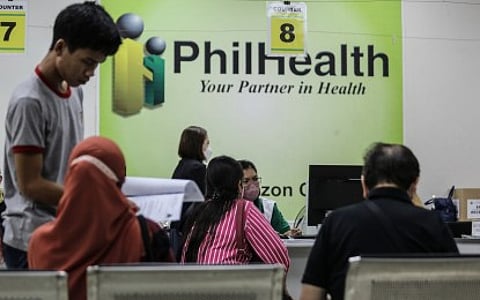
- NEWS
- the EDIT
- COMMENTARY
- BUSINESS
- LIFE
- SHOW
- ACTION
- GLOBAL GOALS
- SNAPS
- DYARYO TIRADA
- MORE

The Supreme Court (SC) has directed the Philippine Health Insurance Corporation (PhilHealth) to be more prudent in using its funds, emphasizing that its primary mandate is to ensure the availability of resources for healthcare services to all Filipinos.
In a 16-page decision released recently, the SC upheld the notice of disallowance (ND) issued by state auditors against PhilHealth. The disallowance pertained to the unauthorized grant of new allowances to its employees totaling P43 million without the approval of then President Gloria Macapagal-Arroyo in 2010.
“As the manager of the state’s national health insurance fund, PhilHealth must ensure the availability of funds and must carry out its fiduciary responsibility through effective stewardship, proper management, and maintenance of reserves,” the Supreme Court stated.
“It is only proper, if not imperative, for [PhilHealth] to be more circumspect in utilizing the funds for the salaries and allowances of its employees. After all, the mandate of [PhilHealth] is to ensure the availability of funds, which it holds in trust to be devoted to providing universal and affordable healthcare to all Filipinos,” the decision read.
The ruling came as a result of PhilHealth’s petition seeking to overturn the Commission on Audit’s (CoA) ruling, which denied PhilHealth’s request for a review of the ND on the grounds of lack of merit.
In its petition to the Supreme Court, PhilHealth argued that it was granted fiscal independence under Republic Act 7875, the National Health Insurance Act of 1995, which established the agency.
PhilHealth contended that its authority to grant allowances was validated by former President Arroyo through a letter to then Health Secretary Francisco Duque III, and Duque’s subsequent letter to Arroyo which sought confirmation of the PhilHealth Rationalization Plan’s approval.
It asserted that the confirmation provided by Arroyo in the letters was equivalent to a presidential approval of the disbursed benefits and a recognition of the agency’s autonomy and independence.
However, the Supreme Court rejected PhilHealth’s arguments, stating that they were untenable. The Court pointed out that the issue of PhilHealth’s fiscal independence had already been settled in the case of PhilHealth v. CoA, where it was determined that Section 16(n) of PhilHealth’s charter did not grant the agency unlimited authority to set employee compensation and unilaterally provide allowances.
“The fiscal autonomy provision under [PhilHealth’s] charter is not without limitations and should be read in conjunction with applicable laws and regulations,” the SC said.
As a result, the Court ruled that state auditors did not commit a grave abuse of discretion in dismissing PhilHealth’s petition for review, thereby affirming the CoA’s decision.
